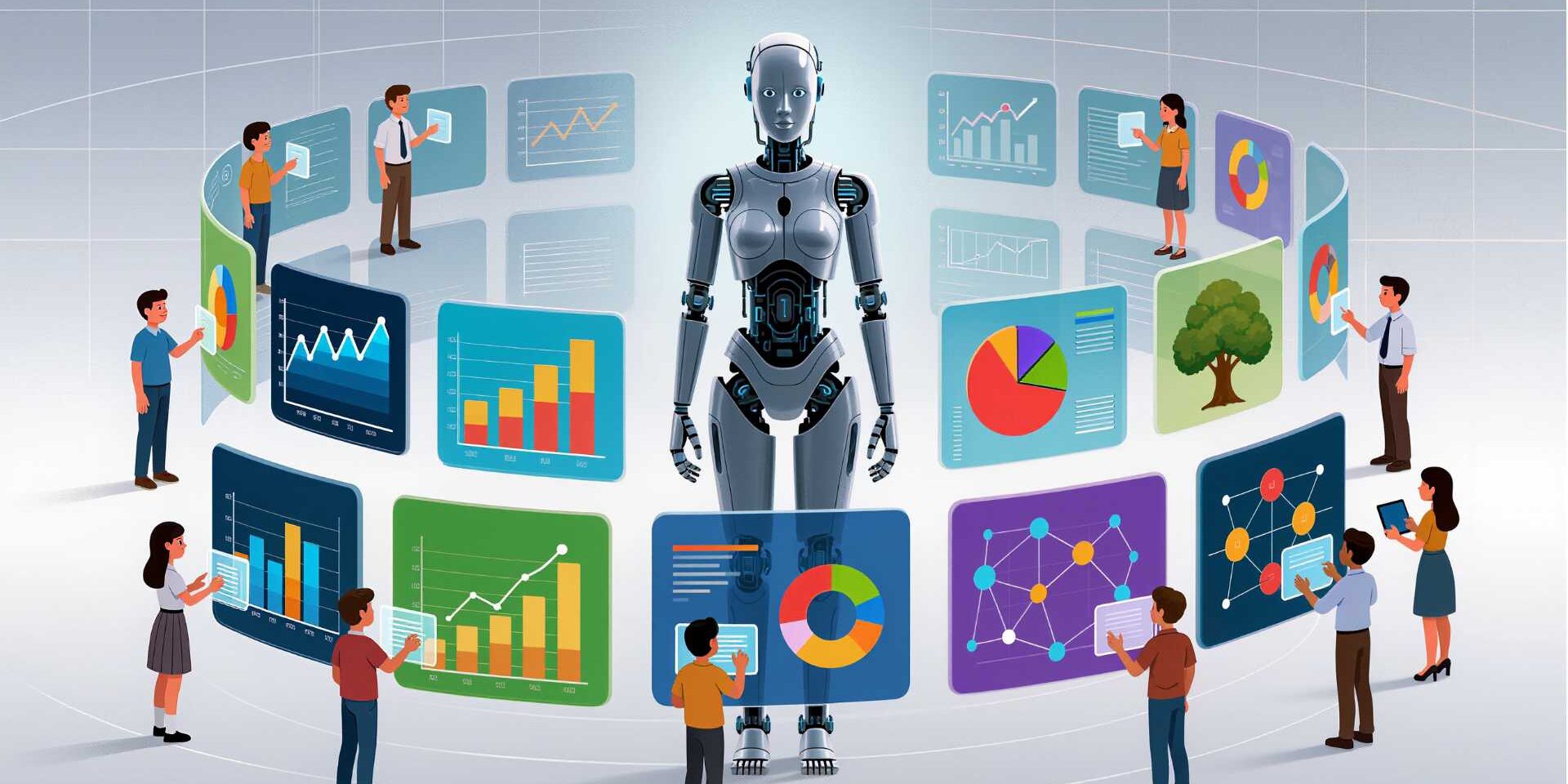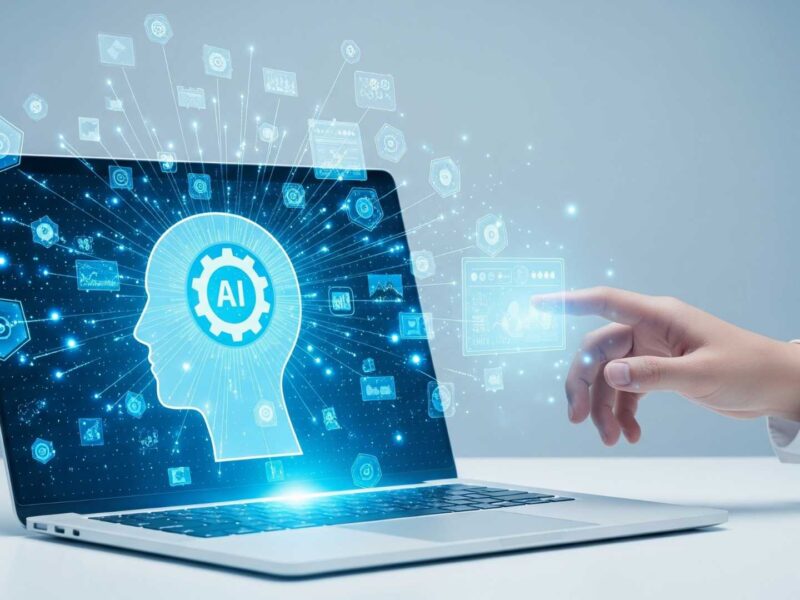Enduring Human Roles: Industry Leaders on AI’s Boundaries
AI is transforming industries, but certain roles remain resilient due to their human-centric demands.
This Techronicler article compiles insights from business leaders, thought leaders, and tech professionals on one job or role in their organization or field untouched by AI and expected to stay that way.
From hands-on plane maintenance requiring physical judgment to client-facing relationship management in finance and law, these examples emphasize empathy, real-time adaptability, and sensory skills that AI can’t replicate.
Experts highlight why authenticity, trust-building, and on-site intuition endure, even as AI excels in data analysis or automation.
These stories remind us that while AI augments efficiency, human elements like emotional intelligence and experiential decision-making remain irreplaceable for safety, creativity, and connection.
Read on!
Plane Techs Require Human Judgment
Plane maintenance techs who inspect and repair planes won’t be affected by AI. They will likely stay that way.
AI helps with scheduling maintenance and analyzing data. Hands-on tasks need human skill and judgment.
This involves fitting into tight spaces, checking worn parts, and fixing complex machines. AI can’t copy these qualities.
These technicians must change their approach based on many factors. These include unusual wear patterns, environmental damage, and unexpected component interactions.
Their work needs more than technical skills. They also must have intuitive problem-solving for new challenges.
The aviation industry has strict safety rules. These rules require people to be responsible for important maintenance choices.
AI can not yet handle tools in tight aircraft spaces or make complex safety choices. So, skilled maintenance technicians will still be essential for flight safety.

Justin Crabbe
CEO & Founder, Jettly
Mentors Spark Coding Epiphanies
The single role that AI would never enter into? Coding education by human mentoring.
Our AI is able to debug, propose optimizations and generate practice problems at AlgoCademy. However, it also cannot recreate the experience of a struggling student who has somehow achieved epiphany through the binary trees after a mentor has told his/her own story of debugging through his/her interview at Google that had gone wrong.
I have seen thousands of students going through our platform. The AI is excellent in the technical scaffolding, but breakthrough moments occur when humans are talking.
When a person is stuck in dynamic programming, he or she must hear how I failed my initial interview with Amazon because I freaked out over the recursion questions.
Artificial intelligence processes patterns. Human beings deal with feelings, lack of confidence, and work-related stress.
The 23-year-old who is getting ready to take his or her first FAANG interview should be told that his or her feelings of imposter syndrome are normal, not algorithmic responses.
Technical mentorship involves vulnerability, failure storytelling and emotional intelligence. These are the human-only areas that an algorithm cannot replicate in a real way.

Mircea Dima
CEO, CTO, Founder & Software Engineer, AlgoCademy
Copywriters Craft Emotional Sales Narratives
It might sound like a miracle, but working in the field of content marketing, I can tell for sure that the job of copywriters is unaffected and will always be like that.
AI-writing has only affected rewriters, i.e. people who never created any value for the clients, except making a unique text. Their job has been totally taken by AI.
Copywriters, i.e. people who used to create texts for sales, marketing, advertisement, PR are still very wanted and too few.
Searching for somebody capable of effective texts with deep meaning are even in greater demand than earlier.
Due to AI Overviews appearance and due to AI search, robots are putting on top of the search (both in google and ChatGPT) the people and the companies who have strong online reputation.
Online reputation is built by various means, the most important of which is positive media coverage.
Therefore even the clients who were not interested in being mentioned in Forbes, Wikipedia, tier-1 and tier-2 media now ask us to help with publications in media.

Nataliia Kyryk
CEO & Owner, Word Factory
Client Managers Build Irreplaceable Trust
One role that’s remained relatively untouched by AI in our agency is Client Relationship Management, specifically, the human-to-human dynamic of strategic consulting and trust-building.
AI can write, copy or predict optimal posting times, but it can’t replace the nuance, empathy, or instinct needed to guide a client through brand pivots, crisis response, or long-term strategy.
At Sociallyin, our clients don’t just want deliverables, they want a partner who understands their vision, challenges, and customers.
That level of emotional intelligence and relationship capital is something no AI can replicate (yet), and I don’t expect it to anytime soon.

Keith Kakadia
Founder & CEO, Sociallyin
Lawyers Offer Empathetic Legal Counsel
The personal relationship between an attorney and their client is one area in our industry where AI has not yet made a significant impact.
Clients want empathy and trust, and AI cannot provide it. As a personal injury attorney, a significant part of my work involves understanding the unique aspects of each case and providing tailored legal guidance.
Although AI may assist with research or documentation, it cannot replace the emotional intelligence required to address the personal issues of the client.
This is a human factor as clients must be made to feel understood and valued, which can never be dispensed with in legal practice and business relationships.

Mark Hirsch
Personal Injury Lawyer, Templer & Hirsch
Agents Deliver Personal Insurance Service
I work in the insurance industry, and AI has changed everything from rating to policy administration. However, customer service has not changed in practice and never will.
People still need reminder calls to pay their premiums and to report changes that affect their policies and rates.
Whether it’s on the policy side or for vendors that service customers or even insurance companies, taking care of accounts still needs to be handled by effective people.
Insurance agents are now tasked to play a more customer service oriented role, while AI automates many of the functions they used to perform.

Fran Majidi
Marketing & Client Relations Manager, Modotech
Loan Officers Foster Financial Trust
One of the jobs that I would not imagine as being affected by AI in the real estate financing industry is the relationship manager or loan officer.
Although AI could assist in the analysis of the data, review of documents, and simple inquiries by customers, no one will ever replace the human element in establishing trust with the customers, getting to know their individual financial status, and providing individualized recommendations.
Personal relationships in the field of finance are very complicated, especially when it comes to large amounts of money and complex operations, so empathy and judgment cannot be simulated by AI.

Jeffrey Hensel
Broker Associate, North Coast Financial
Shop Workers Defy Automation
In our custom protective packaging manufacturing company, the one role that remains completely unaffected by AI is our Shop Floor Employees.
Despite implementing AI across quoting, project management, and data entry, our manual work remains fundamentally unchanged due to the physical nature of the job.
This role will likely remain AI-resistant because it combines physical manipulation, sensory assessment, and experiential judgment that current technology cannot replicate.
I am constantly staying up to date on robotics like Tesla’s Optimus as that is the only thing that might change this.
Supervisors Master On-Site Intuition
When it comes to things like events and exhibits, on-site project supervision is something AI will never be able to touch.
No matter how sophisticated technology becomes, nothing is ever going to replace the eyes, instincts, and judgement of a person who is on-site, solving problems in real-time.
I have seen project supervisors at Müller Expo weave magic on-site, catching build errors, making changes to layouts on the fly, managing client expectations with grace and ease, and keeping calm under duress.
Sure, AI can help with planning, logistics, and scheduling and can maybe even take it to the next level of predictive scheduling, but it will never be able to walk a floor, read a room, or diffuse tension between contractors and clients.
This is where emotional intelligence, spatial awareness, and gut instinct matter, and that comes from being on the ground; as long as the real world remains unpredictable, this role will always belong to a human.

Jamilyn Trainor
Owner & SPM, Mullerexpo
On behalf of the Techronicler community of readers, we thank these leaders and experts for taking the time to share valuable insights that stem from years of experience and in-depth expertise in their respective niches.
If you wish to showcase your experience and expertise, participate in industry-leading discussions, and add visibility and impact to your personal brand and business, get in touch with the Techronicler team to feature in our fast-growing publication.












